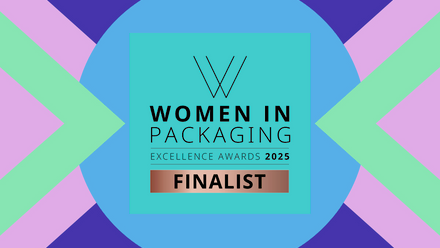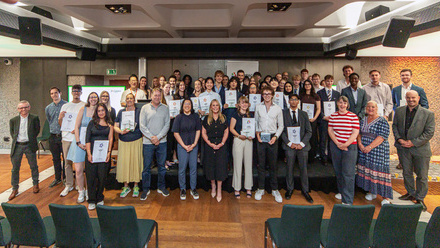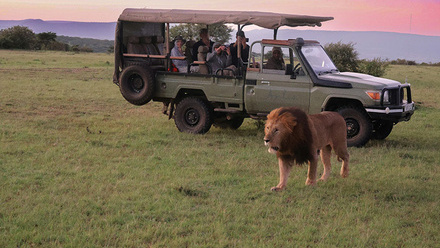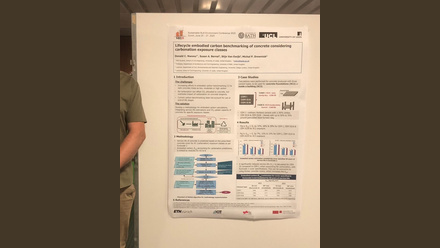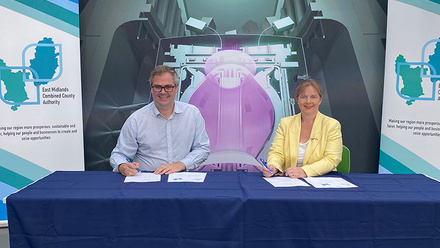On the CAISE – working towards inclusion
Queen Mary University of London (QMUL) has launched a virtual Centre for Academic Inclusion in Science and Engineering (CAISE).
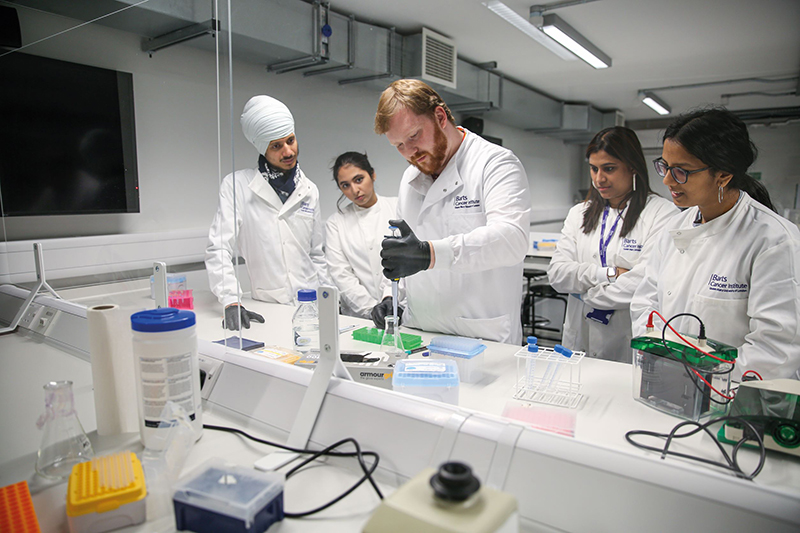
This is a direct response to QMUL’s Strategy 2030, to be the most inclusive university of its kind, anywhere. CAISE will work across the faculty’s five schools and support students with an evidence-led approach.
CAISE Director Gabriel Cavalli says the project germinated from conversations with colleagues two years ago. 'Teaching STEM subjects in English in a joint department in China, we started observing the impact of language in really accessing the subject for students in that setting because you can’t avoid it.'
With a sociolinguist, they realised that 'this must be happening also with students whose first language isn’t English because we don't speak and learn in English, we speak and learn in the subject – in STEM-glish, Chem-glish or Computer Science-glish. That expertise itself is a barrier'. They found these barriers to be synergistic with more traditional inclusivity issues, experienced by minoritised groups.
The project crystallised after support from the faculty, with Professor Henri Huijberts, now Chair of CAISE’s Advisory Board, championing it internally. The voluntary directors all applied for their roles, with Deputy Director Folashade Akinmolayan-Taiwo seeing hers as, 'Identifying who’s doing good practice, who wants to do good practice, and who’s on the path to do it but doesn’t quite know what that looks like. Over the last two years, everyone’s had to change their teaching practice. So, we’ve had to evolve with the times.'
Cavalli says, 'When you cannot be face to face with people, you have to start interrogating what is it that I’m doing in the classroom that is worthwhile keeping under these conditions, what needs modifying?'
QMUL's Active Curriculum for Excellence mandates an active learning component per module. 'It’s much more fertile territory right now for change in education,' Cavalli says.
Akinmolayan-Taiwo reflects, 'It’s also helped us have these conversations with students, because they would be used to didactic teaching where they expect to come in and just hear knowledge spoken at them… Now we can start co-creating an inclusive environment.'
Sense of belonging
Deputy Director Marie-Luce Bourguet sees her role as'“pushing these good practices further into research, into systematic investigation and publishing. It’s about championing scholarship and inclusivity. Coming up with the tools and methodologies to evaluate how inclusive the curriculum is in the faculty.'
Cavalli recognises that will be difficult, '...we will depend on students coming forward and sharing their experience, but that can be painful'. Indeed, at the launch event, Cavalli talked about his recent diagnosis of high sensory possessing sensitivity. 'I can't ask you to talk about your issues. All I can do is contribute by talking about mine…unless I actually put myself into that position, what right do I have to ask you to talk about your issue.
'What we are interested in doing is measuring and asking students about their feeling of belonging to their school.'
The topic of inclusivity has been front-of-mind at QMUL. Cavalli, who is from Uruguay, says that its students don’t fit a common idea of what the student experience is in the UK.
'When I crossed the door into the room, it was completely different to other universities I had been in before. There are elements of that inclusion that are unavoidable to address because of who we are. A very large proportion of our students live locally, they may work or care for someone in their family so don’t stay in the halls of residence. There is a perception that students have it easy. This is not our students.
'The original Queen Mary mission in the East End [of London] was to educate the children of working class people living nearby. The student demographics and our targets have expanded but the inclusive mission has stayed.'
Akinmolayan-Taiwo says, 'We owe it to our students to not only experience an inclusive environment but to develop confidence and positive self-awareness. These students from minoritised groups are the majority in our institution. But they will go into minoritised employment upon graduation.
'They really need to be empowered in this critical stage of growing into whatever their career could be.'
There is the potential for collaborations, such as with groups championing minority ethnic engineers and scientists. The CAISE advisors include engineers, scientists, academics and those championing equality, diversity and inclusion more broadly in STEM.
Cavalli reflects that 'there’s a lot of work that needs to be done to map the terrain of where we are at, identifying the gaps, but also where the yet unseen good practices are as well'.


